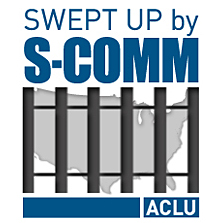D.C. Says No to S-Comm: City's Mayor and Council Take Bold Steps to Protect Immigrant Community


EditorÔÇÖs Note: This is the first of five blogs in a series focusing on firsthand experiences with Secure Communities from across the country.
Described as a hero by those he has helped, Jai Shankar, father of a 10-year-old, has lived in America for 20 years. His son is a citizen. He is not.
When JaiÔÇÖs friendÔÇÖs camera was stolen, he called the D.C. Metropolitan Police Department. Instead of seeking out the thief, the police questioned Jai, determined he was out of status and held him for ICE (Immigration and Customs Enforcement).
After more than five months of incarceration and two years of wearing an ankle bracelet, a cloud of deportation remains over JaiÔÇÖs head. Last year, and this year, the Department of Homeland Security (DHS) set . While DHS and the Obama administration boast about this, the reality is the government is breaking up families, separating children from their parents and making those in fear of deportation reluctant to cooperate with the police ÔÇö even when at home.
Much of this is the result of DHSÔÇÖ Secure Communities (S-Comm) program, which after rejections by state and local governments, has gone from a so-called ÔÇ£voluntaryÔÇØ program to a ÔÇ£mandatoryÔÇØ program, to be in full effect nationwide by 2013.
When the ÔÇ£voluntaryÔÇØ S-Comm program was launched, Washington, D.C., was the first in the nation to reject it. Illinois, Massachusetts, New York and others followed. Under the new ÔÇ£mandatoryÔÇØ program, immigrants like Jai, who have committed no crime or have committed a minor offense can be held for ICE, without ever having been convicted of anything.
In response, at the urging of the └¤░─├┼┐¬¢▒¢ß╣¹ of the NationÔÇÖs Capital and its coalition partners, Mayor Vincent C. Gray issued an executive order, which was soon followed by the , unanimously endorsed by every member of the D.C. Council. Our mayor and council made it clear that Washington, D.C., is a sanctuary community and that we would not allow the DHS to federalize our police department.
It has been a long-standing policy for years in the District of Columbia that there is a bright line between immigration enforcement and the local police. Former Mayor Marion Barry issued an executive order to that effect in 1984 and his successor, former Mayor Sharon Pratt Kelly reissued the order.
To note, recent actions by Mayor Gray and the D.C. Council to oppose S-Comm do not mean hardened, violent criminals can go free in D.C. The D.C. Department of Corrections can hold those convicted of violent crimes for up to 24 hours for ICE, so long as there is a written agreement that ICE will pay for these holds.
That goes a long way, not only in protecting civil liberties, but also for the cityÔÇÖs budget. Holding individuals who might otherwise be released, pending trial, is an expensive undertaking and increases an already overcrowded jail population. The D.C. Council bill also makes clear that the Department of Corrections has discretion in this regard.
DHS claims that in implementing S-Comm, it intends to go after violent criminals for deportation. But Jai Shankar is not a criminal in any sense. He helped the homeless, fed the hungry and assisted the elderly and disabled. But because of S-Comm, he faces a future that is unclear. WhatÔÇÖs worse is his son, Sanjay, has been left without a father. Needless to say, that doesnÔÇÖt make this little ten-year-old, or our city, any more secure.
Learn more about immigrants' rights: Sign up for breaking news alerts, , and .

